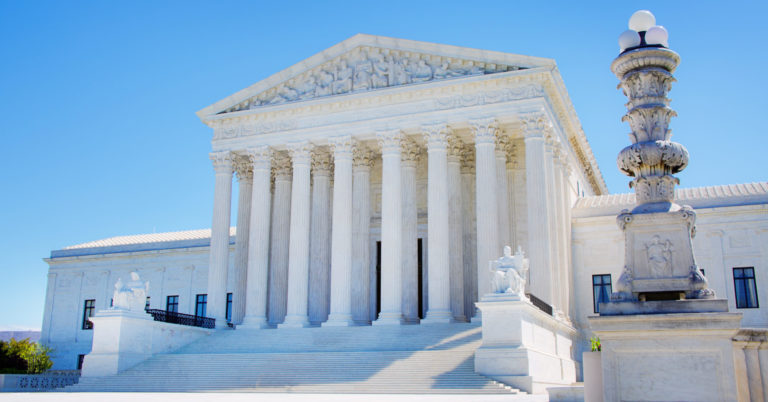
Supreme Court Takes Up Case on Protecting Americans from Intimidation
Arlington, Va. – The U.S. Supreme Court granted cert today in a case that puts at risk long-cherished freedoms reaffirmed in NAACP vs. Alabama. The justices will hear AFPF v. Becerra, a case about freeing people from intimidation by those in power and defending their right to engage on issues they’re passionate about.
“All Americans should be free to organize around deeply held beliefs,” said Americans for Prosperity Foundation CEO Emily Seidel. “Stripping citizens of their privacy is a tool wielded by some in political power to silence their opposition and stifle individuals from engaging in educational and charitable efforts.
“Tens of thousands of Americans each year participate in AFPF’s educational programs, which inspire them to make a greater impact in their community and our country. Their rights — as well as the rights of every person who participates in organizations that seek to reform our justice system, protect the rights of our veterans, or make progress on other issues as diverse as Americans themselves — are at stake. The Court’s decision to hear the case signals the importance of these foundational civil liberties.”
AFPF works in communities and alongside partners to provide educational programs and resources on the toughest issues facing our country.
Additional Background:
The right of all Americans to choose if and how they publicize their support of nonprofit organizations has been affirmed by each court involved in AFPF v. Becerra to date. Requests for information by the government not tied to a narrowly tailored government interest are tools for intimidation. Furthermore, government actors leaking the names of a nonprofit organization’s supporters could put those citizens at risk of real harm.
Now, the question is whether that standard still applies. Not only does the collection of private donor information fly in the face of existing precedent, but, in their dissent from denial, Ninth Circuit Judges Sandra Ikuta, Consuelo Callahan, Carolos Bea, Mark Bennett, and Ryan Nelson raised concerns that the likely disclosure, accidental or otherwise, of that private information would lead to real harm (emphasis added):
This robust protection of First Amendment free association rights was desperately needed here. In this case, California demanded that organizations that were highly controversial due to their conservative positions disclose most of their donors, even though, as the district court found, the state did not really need this information to accomplish its six AFPF v. Becerra goals. Although the state is required to keep donor names private, the district court found that the state’s promise of confidentiality was illusory; the state’s database was vulnerable to hacking and scores of donor names were repeatedly released to the public, even up to the week before trial.
…
[The] panel’s reversal of the district court’s decision was based on appellate factfinding and was contrary to the reasoning and spirit of decades of Supreme Court jurisprudence, which affords substantial protections to persons whose associational freedoms are threatened. Judge Ikuta wrote that under the panel’s analysis, the government can put the First Amendment associational rights of members and contributors at risk for a list of names it does not need, so long as it promises to do better in the future to avoid public disclosure of the names. Judge Ikuta wrote that given the inability of governments to keep data secure, the panel’s standard puts anyone with controversial views at risk.
…
There was ample evidence of human error in the operation of the state’s system. State employees were shown to have an established history of disclosing confidential information inadvertently, usually by incorrectly uploading confidential documents to the state website such that they were publicly posted. Such mistakes resulted in the public posting of around 1,800 confidential Schedule Bs, left clickable for anyone who stumbled upon them. And the public did find them. For instance, in 2012 Planned Parenthood became aware that a complete Schedule B for Planned Parenthood Affiliates of California, Inc., for the 2009 fiscal year was publicly posted; the document included the names and addresses of hundreds of donors.
For more information or an interview, please contact Lo Isidro at LIsidro@afphq.org or (703) 887-7724.



